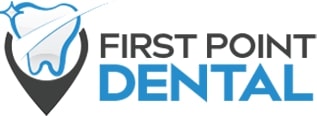Why Does a Crossbite Need to be Fixed?
Living without chewing problems and smiling without feeling conscious is something that not everyone is blessed with. Some people suffer from jaw and teeth misalignment like a crossbite. Certified dental specialists in orthodontics, like our orthodontists in Chicago at First Point Dental, are experts in preventing, diagnosing, and fixing crossbites. This post details about why does a crossbite need to be fixed .
What is a Crossbite?
Crossbite is a kind of malocclusion or teeth misalignment. It is an orthodontic condition wherein some of the upper teeth of the patient fit behind some of the lower teeth when the mouth is closed. It can involve a single tooth or group of teeth and it can happen in the back or front of the mouth.
Different Kinds of Crossbite
- Anterior/ Front crossbite- This occurs when one or more of the front upper teeth are positioned behind the front lower teeth. It is commonly known as an underbite. It is often the result of crowded teeth and mouth breathing.
- Posterior/ Back crossbite- This happens when one or more of the back lower teeth sit outside the back upper teeth. It happens for the same reasons as front crossbite, but sometimes it can be an outcome of delayed falling of milk teeth.
Symptoms of a Crossbite
People having crossbite experiences the following:
- Trouble closing the mouth completely- the top and bottom teeth do not touch each other properly
- Speech issues such as lisping and unclear speech delivery
- Accidental biting of the inside of the cheeks or lip while talking or eating
- Toothache or pain in a group of teeth.
- Jaw pain
- Severe headaches.
Causes of a Crossbite
There could be many culprits of a crossbite, some of which are:
- Family history of a narrow palate or upper jaw
- Baby teeth not falling out in time
- Prolonged thumb sucking
- Bad chewing habits
- Missing teeth
- Drinking of milk with pacifiers or bottles past-infancy
- Unexpected eruption of permanent teeth
- An injury to the mouth or jawbone
- Poorly matched teeth and jaw
- Mouth breathing.
Why Does a Crossbite Need to be Fixed?
Treating a crossbite is very important. If a crossbite treatment is delayed or ignored, it can cause a host of dental problems. The complications of an untreated crossbite include:
- Difficulty in biting and chewing
- Painful TMJ (Temporomandibular Joint) dysfunction/disorder
- Uneven and excessive wearing of teeth enamel
- Chips or cracks in teeth caused by constant colliding of upper and lower teeth against each other
- Irregular jaw growth
- Gum disease/ Periodontitis resulting from wearing down of teeth enamel by persistent rubbing of teeth against each other
- Receding gums caused by severe decay and infection as a result of constant colliding of upper and lower teeth.
How to Fix a Crossbite?
Now that you have got to know the need to get crossbite fixed, you must visit an orthodontist to get it done. At the initial consultation with our orthodontist, you will first undergo a comprehensive dental exam and the dentist will look into your diagnostic records to determine an accurate diagnosis. After your diagnosis, an individualized treatment plan will be created to align your teeth and jaw.
Crossbites can be fixed with a variety of treatment options, depending on the age of the patient and the extent of the problem.
For Paediatric Patients
Crossbite treatment for people with still developing jaw may involve:
- Palate expander- This can aid in raising the upper palate of the mouth so that the bottom teeth fit perfectly with the top teeth.
- Dental braces- There are varieties of braces available to gradually shift the misaligned teeth in the right position. A single crossbite can be effectively fixed with braces. However, for multiple teeth crossbites, ligation with rubber bands would be required. Rubber bands are auxiliaries that provide binding force to connect the top and bottom dental arches and align the bite.
For Teenagers and Adults
- Dental braces- Traditional metal braces for crossbite treatment comprise metal wires, brackets, and elastic rubber bands, are the most effective option for fixing all kinds of crossbites. However, adults and even most teenagers don’t want to get them because of their unappealing visibility. Besides conventional braces, teenagers and adults also have the option of tooth-colored ligatures, ceramic braces, lingual braces, and self-ligating braces.
- Invisalign/ Clear aligners- These are clear, invisible, removable tooth aligners, made of a series of custom-made trays, serving as the best alternative to braces. It works just as traditional braces but it is not noticeable and can be removed before eating. When treating crossbites, the trays can be fitted with additional dental appliances used to treat crossbites.
- Jaw realignment surgery- Rarely, a crossbite can become severe. If that is the case, the only option to treat it is an orthognathic surgery. It is the only approach to achieve stable, dramatic results in adults having severe crossbite. The surgery involves incision of jawbones and moving them in the right position. The newly positioned jawbones are kept secure in place with the help of tiny bone plates, screws, rubber bands, and wires.
If you are suffering from teeth misalignment and looking for crossbite treatment, one can get in touch with the orthodontist near me at First Point Dental for more details!

